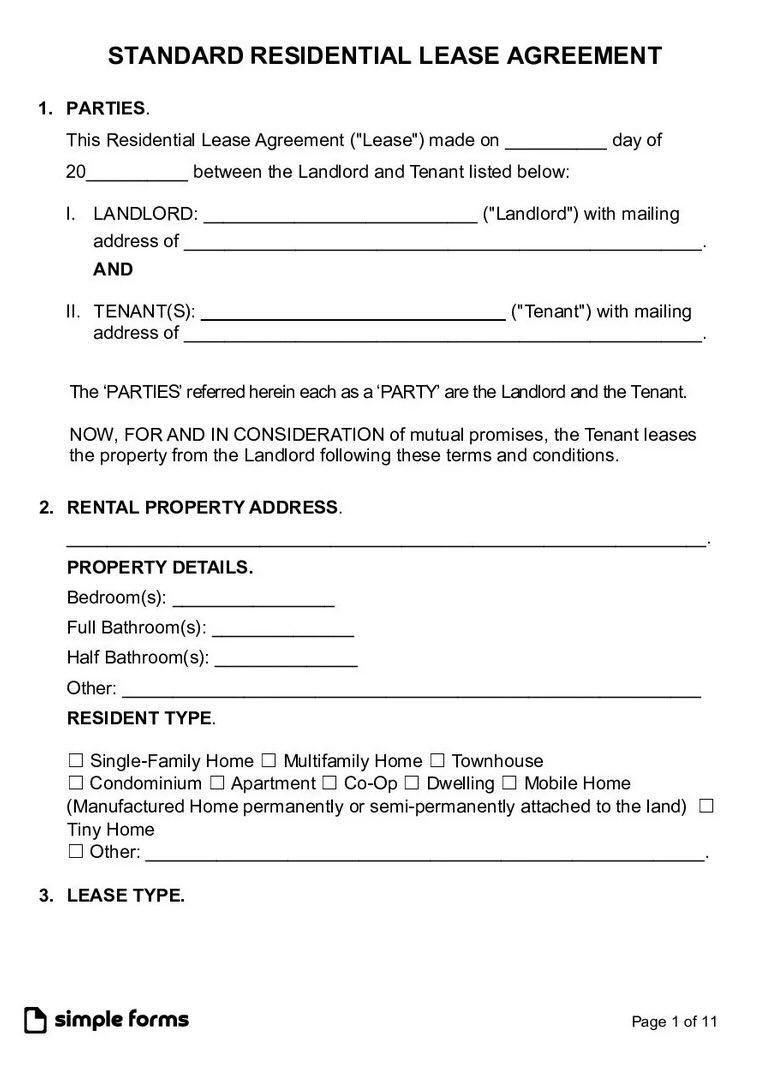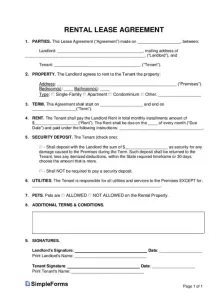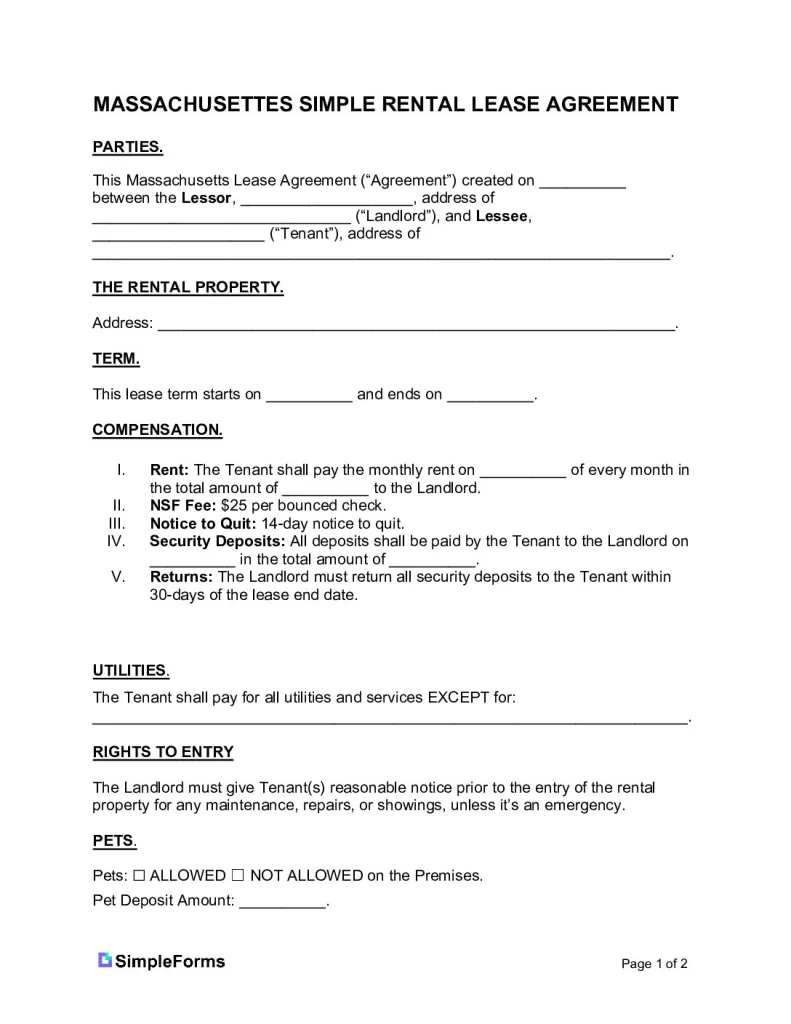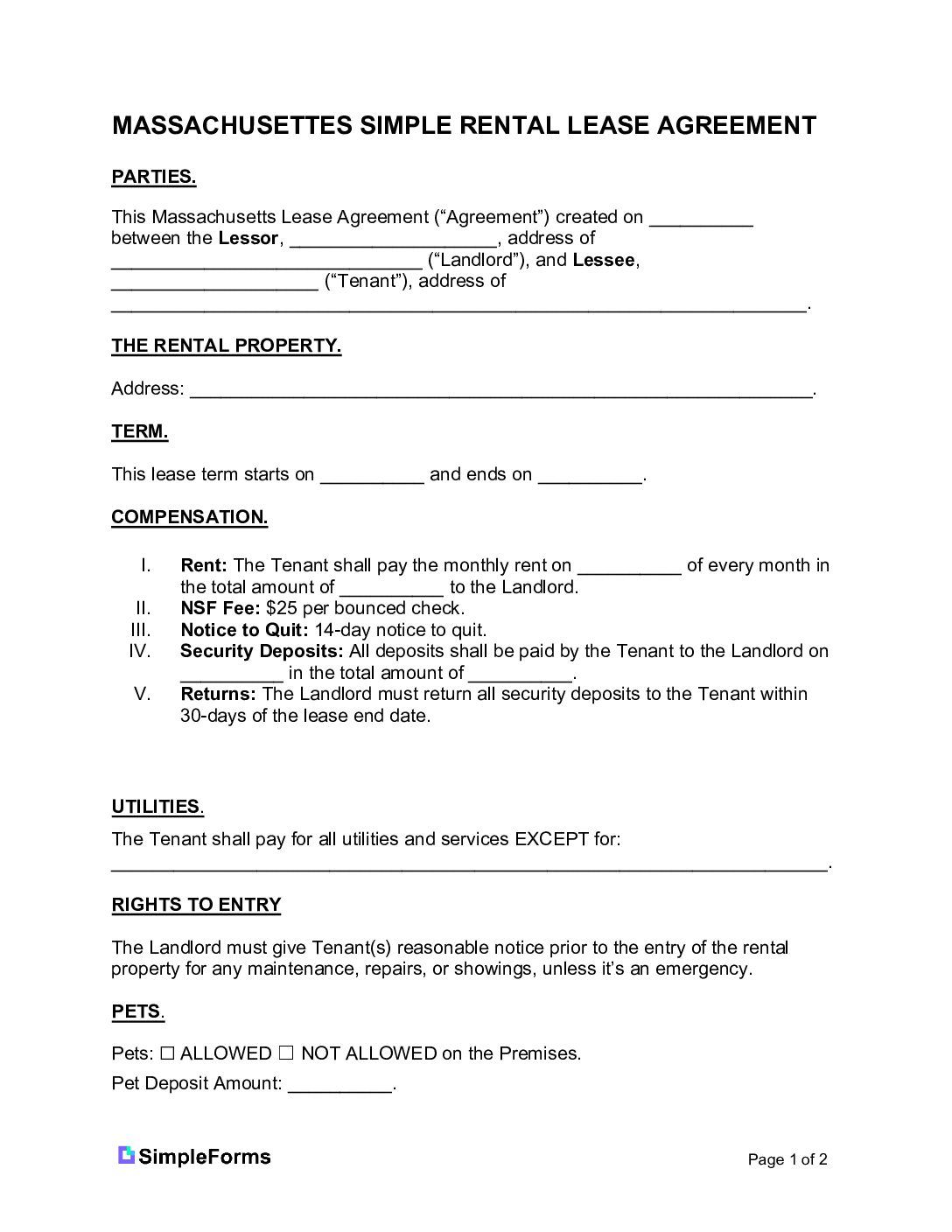A Massachusetts lease agreement is a legally binding document that creates a relationship between the Landlord and Tenant when renting real estate property. Once signed, the agreement requires the tenant to occupy the property and make timely rent payments, while the landlord is responsible for verifying the tenant’s income and conducting a credit check to ensure their ability to meet their financial obligations.
Options By Type
 Standard Residential Lease Agreement Standard Residential Lease Agreement
Download: PDF |
 Simple (1-Page) Lease Agreement Simple (1-Page) Lease Agreement
Download: PDF |
Most Recent US Home Facts
- Population (2023): 334,914,895
- Median Households (2022): 125,736,353
- Median Household Income (2022): $75,149
- Owner-occupied Households (2022): 64.8%
Source: U.S. Census Bureau
Required Disclosures (5)
- Fire Insurance
- Inventory Checklist
- Lead-Based Paint Disclosure Form
- Security Deposit Receipt
- Follow-up Deposit Statement
Security Deposits
- Maximum Amount – Landlords may only request one (1) month’s rent as the maximum amount allowed.
- Returning – Landlords must return the Tenant’s deposit within thirty (30) days after the Tenant has vacated the property.
- How to Deposit – In accordance with Massachusetts law, landlords are required to adhere to specific security deposit procedures at the commencement of a lease agreement. Failure to comply with these procedural requirements may result in financial penalties up to three times the amount of the security deposit, in addition to a 5% penalty, and the responsibility of the landlord to cover the tenant’s legal fees.
Source: § 15B(1)(b)(iii)
Grace Period
Rent is due on the date specified in the lease agreement. Late fees cannot be charged until 30 days after the due date. If the tenant is late on rent, the landlord can begin eviction proceedings the next day by issuing a 14-day notice to quit.
Source: § 15B(1)(c)
Late Fees
Maximum Penalty – No limit (infinite amount according to written lease)
NSF Fee – The maximum fee for NSF is 1% for checks of $2,500 or more. A $25 fee may be charged for checks under $2,500.
Source: § 57A
Right to Enter
According to the Sanitary Code, the landlord is obligated to provide reasonable notice before entering the rental property for any repairs. While it is not mandatory, it is advisable for the landlord to give notice to the tenant for any other reason to enter the premises
Source: § 410.810

